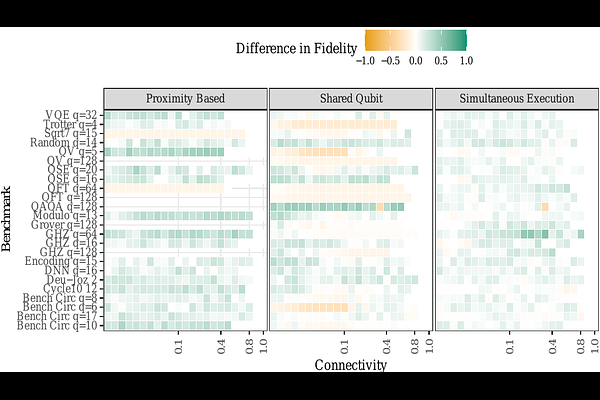Stacking the Odds: Full-Stack Quantum System Design Space Exploration

Stacking the Odds: Full-Stack Quantum System Design Space Exploration
Hila Safi, Medina Bandic, Christoph Niedermeier, Carmen G. Almudever, Sebastian Feld, Wolfgang Mauerer
AbstractDesign space exploration (DSE) plays an important role in optimising quantum circuit execution by systematically evaluating different configurations of compilation strategies and hardware settings. In this work, we study the impact of layout methods, qubit routing techniques, compiler optimization levels, and hardware-specific properties, including noise characteristics, topological structures, connectivity densities, and device sizes. By traversing these dimensions, we aim to understand how compilation choices interact with hardware features. A central question in our study is whether carefully selected device parameters and mapping strategies, including initial layouts and routing heuristics, can mitigate hardware-induced errors beyond standard error mitigation methods. Our results show that choosing the right software strategies (e.g., layout and routing) and tailoring hardware properties (e.g., reducing noise or leveraging connectivity) significantly enhances the fidelity of quantum circuit executions. We provide performance estimates using metrics such as circuit depth, gate count, and expected fidelity. These findings highlight the value of hardware-software co-design, especially as quantum systems scale and move toward error-corrected computing. Our simulations, though noisy, include quantum error correction (QEC) scenarios, revealing similar sensitivities to layout and connectivity. This suggests that co-design principles will be vital for integrating QEC in future devices. Overall, we offer practical guidance for co-optimizing mapping, routing, and hardware configuration in real-world quantum computing.